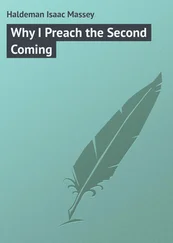“What would you do?”
“I don’t know.”
“You’d walk.”
“To not get shot by Germans? Yeah, I’d probably walk.”
“Is that heroic?”
“Slightly.”
“You see, he’s always making things into a poem. Seventy years later, the Boers took a kid and shoved his mouth into the exhaust pipe of a helicopter. What happened?”
“What?”
“It blew him apart. They found pieces of him ten K’s away. Was the boy a hero?”
“Is this an argument?”
“Was the boy a hero or not?”
“That wasn’t a choice. There’s a difference, that’s all I’m saying.”
“And I’m saying it’s a part of a continuum. Which will keep on happening as long as old stupid men tell stories of how heroic it is to be murdered.”
She stands up, brushes herself off like she’s leaving early. She never leaves early. Neither of us ever leaves early.
“You’re leaving?”
“Is having your mouth shoved into an exhaust pipe biblically heroic or not?”
“Are you asking me if there are any helicopters in the Bible?”
“There are chariots.”
“So how would you tell Waterberg?”
“I would say it was a military strategy. That the Hereros meant to live to fight another day.”
“With no ammunition and no water? With women and children? Isn’t that as much of a fantasy as that they were heroes?”
“Yes — but at least then the guru can’t cry for them. The way I see it, they still had it in their minds to murder back the Germans.”
“Will you guest-lecture?”
“No.”
“Will you come here?”
“No.”
Isee them now. I get it.”
She’s picking at the skin between her toes. She won’t look at me. “Feeling sorry isn’t seeing them,” she says.
“Not feeling sorry. I’m only saying there’s something to be said for letting the land kill you rather than the Germans.”
“Listen. The myth is a lie. As soon as you tell it, you can’t see it anymore. For it to be — I don’t say mean, I say be —you don’t talk it, you just see it. Try, try and imagine it.”
“I’m trying.”
“See them?” Mavala whispers. “They’re so delirious they can no longer remember where the secret boreholes are, and the ones that are known to the Germans are patrolled by soldiers with orders to kill. So they start to dig — anywhere. No divining rod, no intuition. They aren’t even thirsty anymore. There’s only something in their throats that feels like a scream. And so they dig, the people dig. And what happens?”
I sit up and grab her arm, pull her hand away from her feet.
“They dug their own graves. I get it.”
“No. You’re going too fast. When they started to claw that ground, they were looking for the water that might be down there. I’m talking about the moment they understood what they’d built — not when they got down into it. I’m talking about when they looked down into the hole. What did they see?”
He lived for a few months up near Auntie and her whelps. His toes poked out of his shoes. One side of his face was caved in. It could have been from a rifle butt or a bullet, but he made no claims to either. He arrived like other castaways before him. He said he was a farmhand, that he’d lived all his life on a farm near Khorixas. After the elections, his baas sold out and left him with nothing and nowhere to live. It was another familiar story. He’d trekked south to Goas. The priest gave him a job helping Theofilus with the goats.
Nobody believed him. His command of languages made us suspicious. There wasn’t a language in the country he couldn’t speak. He could talk to every boy at Goas in his mother tongue, and for this he was soon famous. Some days he’d lead the goats to the courtyard, careful to keep them off Ireland, and stand and talk, ringed by a group of boys begging him to speak to them personally.
He also spoke Portuguese.
What choice did we have but to gossip? A farmhand as far south as Khorixas speaking Portuguese? It was all anybody needed. It put him on the border during the war. And if he was on the border during the struggle — and he didn’t want to boast about it — there was only one answer to the question of what he’d been doing up there. He’d been a stooge.
At first, nobody made anything of it. The war was still too close. He wasn’t the only one at Goas hiding something. And the man seemed to know his place now. He was doing his penance, like any honest traitor would. To the Church, to God, to whomever. His toes poked out of his shoes. Someone had caved his face in. Now he watched goats look for something to swallow during a drought. How much lower can a man descend?
The principal didn’t see it this way. But whether Abram had sold out freedom fighters during the struggle didn’t matter to him. What bothered the principal was the possibility that the new shepherd might be smarter than he was. He couldn’t have some farmhand wearing his head so high. Obadiah could very well be brilliant — if that’s what being brilliant is like — so long as he remained a foolish drunk. This new Abram only drank cooldrink. The problem, though, was that as an employee of the Church, Abram wasn’t his to banish.
“Teacher Festus?”
“Yes, Master Sir?”
“Would you step into my office a moment?”
“With pleasure.”
It didn’t take our lovable henchman long. We were drinking by the fire. It was a Saturday night. After a few lagers, Festus said, “Abram?”
“Teacher?”
“I have a curiosity.”
“Yes?”
“We live in a new nation, am I correct?”
“Yes, Teacher.”
“One in which it is possible for a man to rise?”
“I suppose so, Teacher.”
“Then I must ask you this: Why do you remain a slave? You don’t want to do more than tend goats? Comrade Nujoma says we must all do our share. Brother, why are you still asleep?”
Someone stoked the fire by nudging it with a shoe. Abram didn’t make a sound with his mouth. He seemed to be laughing from somewhere deep down in his stomach. It was unsettling. We hadn’t heard him laugh before. He took a long gulp of his Pepsi. Then he laughed with his mouth. He wasn’t a big man, but his laugh in the dark made him seem like one. We took a step back from the fire. Finally, I thought, someone’s going to murder Festus.
“It’s interesting to be asked such a question by a black man such as you seem to be, Teacher,” Abram said.
Someone murmured, Amen .
Then Abram tossed his Pepsi on the fire (half full, it sizzled) and stepped away into the night. We listened to his slow steps across the rocks. When he was out of earshot, Festus was bold again.
“See the way he threatens? Isn’t it obvious?” Festus paused and sucked his teeth. “The man’s an assassin.”
“Who’s he here to kill?”
“I place my vote for Master Sir.”
“No, better the priest. Better to keep the devil we know —”
“No, let them live. Auntie.”
“Yes, Auntie!”
“All in favor say aye?” Pohamba said.
Chorus of ayes, with one mouth silent.
“Vilho?”
“All right. Auntie,” Vilho said. “In certain circumstances, even the Lord would condone —”
Obadiah squeezed my elbow. “Who wasted an honest beer?”
“It’s Pepsi. Abram’s.”
“Ai, die Pepsi.”
Even so. Assassin? Doesn’t the word itself carry its own hiss of truth? And don’t rumors have a way of overcoming the artlessness of their spreader? So it was born. Abram, the new farmhand, had been in the pay of the Boers, a member of a hit squad during the war. Ferreting out traitors never gets dull. And didn’t they train him well? Who better than a champion linguist? What part of the country couldn’t the man infiltrate? And why else would someone have caved his face in like that? There he is in the courtyard. The murderer. Look at the man now. Goats, he tends goats. Safe in the doorways of our classrooms, the boys are silently laughing, their mouths opening and closing like mocking fish.
Читать дальше












